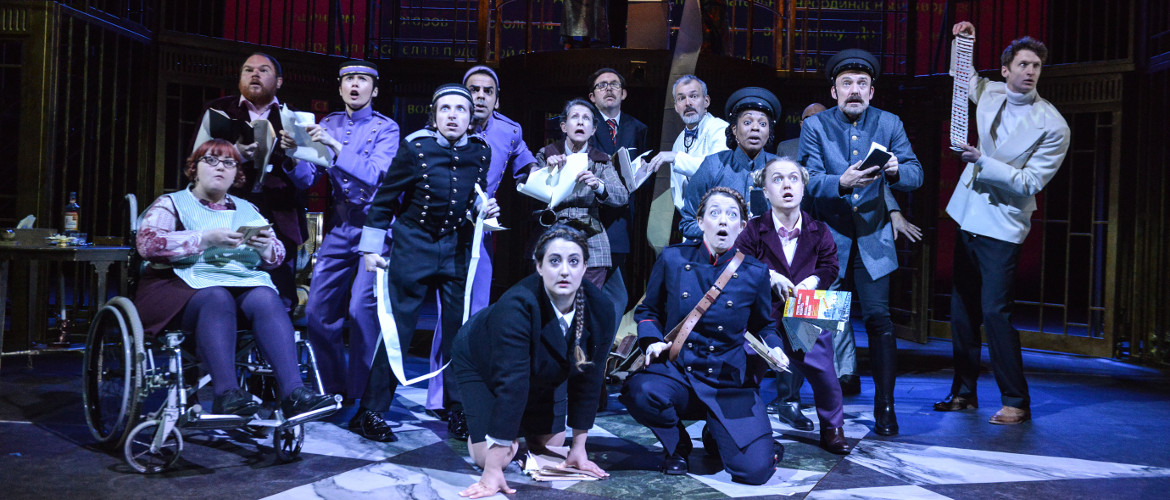
Dreda Blow as Jane Eyre
Photo credit: Emma Kauldhar
At the beginning, in the prologue, there is a sinister and haunting atmosphere on stage reflecting the darkness and poignancy of this classic. A woman encounters male figures who obstruct and confuse her path physically and figuratively across the moors. Eventually she is rescued by a man and it is time for her tale to be retold....
Marston's aim is to have Jane Eyre as the focal point in the production and share with the audience her emotions including love. Dreda Blow, a leading soloist, exemplifies this with excellent portrayal through classical and contemporary dancing. She physically interprets well the emotive flight of Jane's 'outer and inner experiences'.
The men in Jane's life starts with her dead father; the bullying from John Reed (Matthew Koon); the self-righteous and abusive Reverend Brocklehurst (Mlindi Kulashe) at Lowood school; personal pursuit by Reverend St John Rivers (Jeremy Curnier) for self gain; and significantly falling in love with the dark and mysterious Mr Rochester (Javier Torres). Not forgetting the D-Men, appearing in each of the scenes, who are the muses representing Jane's inner self whether its a curse or blessing. All the named dancers portrayed the roles successfully and convincingly.
The intimacy and true love and passion is found between Jane and Mr Rochester cannot be ignored. The scenes build up these emotions from the slow and passionate duets by Blow and Torres and accompanied by Philip Feeney's haunting beautiful music, made up by personal and original compositions.
Alastair West's lighting doesn't go amiss. The dim restricted lighting fits well in Patrick Kinmonth's staging with its dark and simple interior sets. A representation of the story's nature and setting is testified - featuring isolation, loneliness, solitary and vastness of the moorlands.
Smooth transitions between the scenes with activities taking place in the background behind a cloth screen as well as on the main stage itself. A combination of interpreting the narration and exploration of its complex emotions.
.jpg/ELqZ4sYDGI0YIAcoBw/BrDVeJvhB7F5Kw49d3zTXyg2dM8GjyTN3k9O7gukVjs?size_mode=3&size=800x600)
Victoria Sibson as Bertha Mason and Javier Torres as Mr Rochester
Photo credit: Emma Kauldhar
One character certainly stands out is Victoria Sibson's exceptional portray of Bertha Mason. The character stands out wearing a red dress which must crucially suggest Bertha's instability, irrationality and vulnerability and the society's response to it. Silence and drama reigns between her, Jane and Mr Rochester.
Marston's choreography reflects admirably the synchronisation between the dancers and its props particularly with the use of desk stools in the Lowood school scene. Certainly an emotional and dramatic retelling of Jane Eyre - apparently based loosely on the author's personal life.
This is an opportunity to embrace this timeless classic into today's world following a well planned and executed production. No doubt will be a regular feature on the company's repertoire now and in the future.







